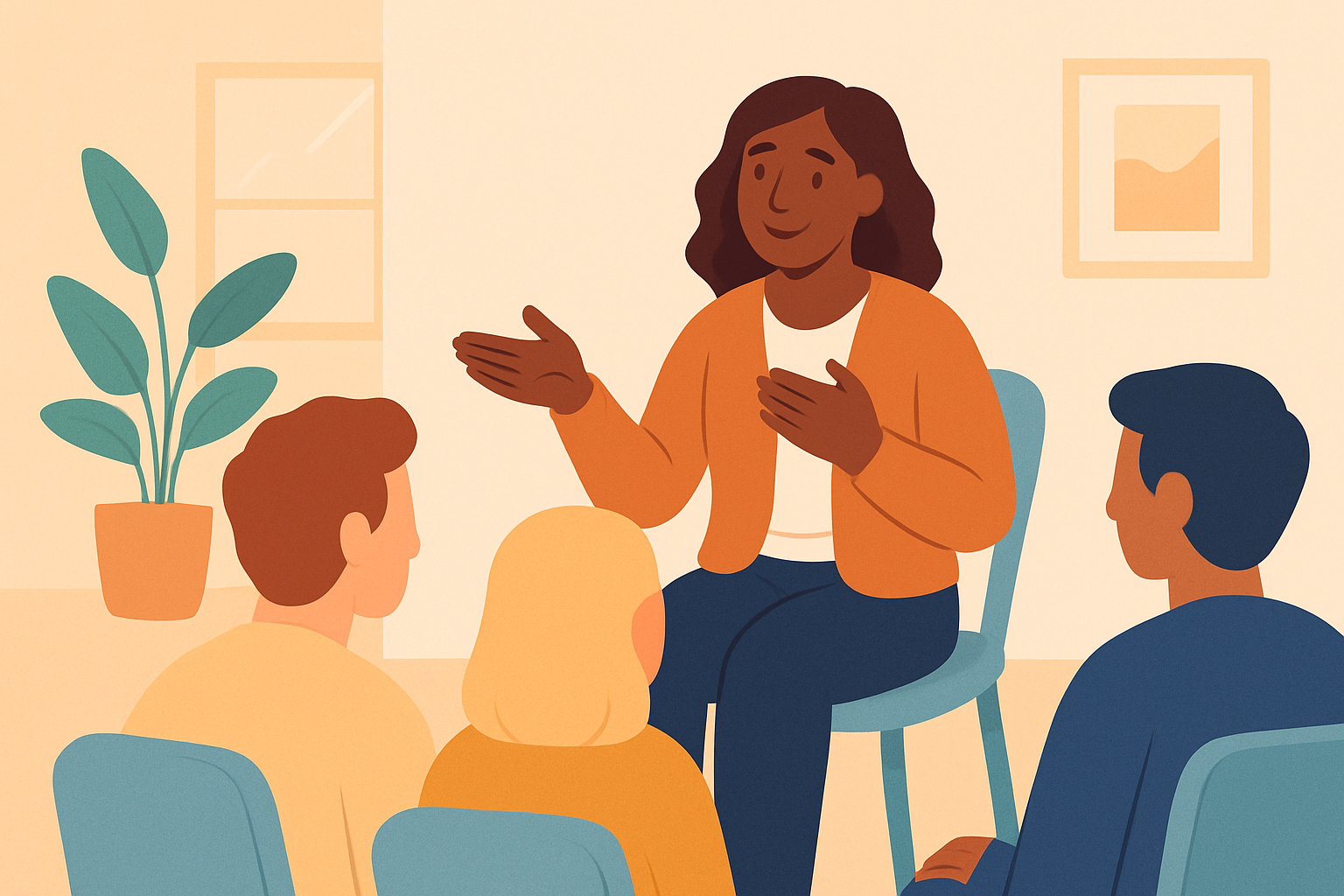Dare To Stay Off Drugs By Building Strong Support Networks

This article walks you through practical ways to build and maintain a support network that truly supports staying drug-free. It draws on down-to-earth advice and helpful resources you can count on.
- See how having a solid support network can seriously boost your sobriety by offering accountability and encouragement plus much-needed hands-on help when the going gets tough.
- Get practical tips for spotting reliable relationships and creating a trusted circle that sticks with you through the ups and downs of recovery.
- Find out about a range of professional and community options from therapy and support groups to sober living environments that can make a real difference.
- Learn simple and effective ways to keep your network healthy and strong through honest communication and give-and-take in shared support.
Avoiding drugs is no walk in the park and takes much more than sheer willpower. Addiction isolates people and makes the solo fight feel like climbing a steep hill without a handrail. A reliable support network can be a game changer by cheering you on and lending a hand when things get tricky.
Why Having a Support Network Really Makes a Difference When You Dare to Stay Off Drugs
A support network is made up of people who step up with emotional, psychological and practical help throughout your recovery journey. Having a crew of positive influences and a circle of accountability in your corner can seriously boost your chances of fighting off drug cravings and staying sober for the long haul.
"Recovery isn’t usually a solo act—it often blossoms from the little things: connection, kindness, and the support we share with one another."
Finding and Strengthening Your Core Support System The Heart of It All
Take a good honest look at your current circle—spot those rare gems who genuinely have your back and support your journey toward sobriety. Nurture meaningful connections built on openness and honesty.
Take a sincere look at the relationships in your life to spot those that truly encourage healthy habits and foster positive attitudes—sometimes the best support comes from the unlikeliest places.
Reach out to family members and close friends who’ve consistently been your cheerleaders, the ones who stick around when times get tough.
Dive into local support groups or community gatherings where people are walking the same recovery path, sharing stories that remind you you’re not alone.
Connect with professional counselors or therapists who specialize in addiction recovery—they’ve got the experience and empathy that can really make a difference.
Set clear boundaries with negative influences, and make a heartfelt commitment to nurture and grow those positive connections that lift you up.

A close-knit support group of friends and family offering encouragement and connection
Unlocking Hidden Gems
Beyond personal connections professional and community resources step in as vital support systems. We are talking about counselors, rehab centers 12-step groups like Narcotics Anonymous and lively online communities that provide not only the tools but also the understanding you need to keep your sobriety on track.
- Licensed therapists who specialize in addiction recovery offer customized coping strategies tailored just for you because one size rarely fits all.
- Peer support groups like Narcotics Anonymous bring together individuals who really get it and create a sense of community with a well-defined program to guide the way.
- Faith-based groups often provide more than just moral encouragement—they offer heartfelt spiritual support that can be a true anchor during rocky times.
- Sober living homes keep things drug- and alcohol-free, creating a safe haven that helps maintain recovery over the long haul.
- Online forums and apps hook you up with support networks anytime and anywhere because sometimes you just need a friendly voice round the clock.
- Rehabilitation centers deliver intensive medically supervised treatment programs that tackle recovery head-on when the going gets tough.
- Community outreach programs typically offer education, mentoring and resources designed to give you a solid start during those key early days of recovery.
Choose resources that really fit your needs and vibe by considering how easy they are to access and the style they use. Importantly, think about how at ease you feel with them.
How to Build and Keep Your Support Network Strong Over Time (Without Losing Your Mind)
Keeping your support network strong really boils down to staying open and respectful with one another. Don’t shy away from being honest about your struggles because it’s better to share the load than carry it solo. Celebrate the little wins as a team since they often mean more than we realize. And when someone needs a hand, be that friendly shoulder even if it’s just to listen.
Keeping those connections alive and kicking really pays off.
Don’t shy away from sharing your challenges and progress openly because it goes a long way in building genuine trust and understanding.
Take a moment to recognize and celebrate milestones, even the tiniest wins. They’re the little sparks that keep motivation and a positive outlook burning bright.
Encourage openness and mutual support so your relationships feel more like a balanced give-and-take rather than a one-sided affair.
When conflicts pop up, try to work through them calmly and healthily. It’s not always easy but it sure beats letting things simmer.
Growth often means shaking things up a bit.
As you gain strength in your recovery, consider reaching out to new peers or lending a hand to someone else on their journey. Sharing your experiences not only helps others feel a bit more hopeful but also weaves a sense of resilience that uplifts both you and the community around you.

Peer support meeting where individuals share and uplift each other
Navigating Common Challenges When Building Support Networks
Building a support network can feel like navigating a maze especially with stigma and damaged relationships and feelings of mistrust or isolation lurking around. Catching these obstacles early is key because it gives you a fighting chance to roll up your sleeves and use practical strategies to knock down barriers.
- Work through shame by reaching out to counseling or support groups that provide a warm non-judgmental space where you can really be yourself.
- Rebuild trust little by little with steady honesty and a dependable presence. It’s a slow dance but worth every step.
- Steer clear of unsupportive people and don’t be shy about setting clear boundaries to protect your hard-won progress.
- Learn to spot what triggers a relapse then team up with a professional to craft coping strategies that actually stick.
- Keep your motivation alive by setting realistic bite-sized goals and taking a moment to celebrate each small win along the way.
“Resilience isn’t about never stumbling; it’s all about dusting yourself off and standing tall again, usually thanks to the individuals who have your back when things get tough.”
Practical Exercises to Build a Stronger Support Network That Actually Sticks
Dare to stay off drugs by getting involved in activities that really help tighten your bonds and encourage everyone to pitch in. These everyday habits and teamwork drills are designed to build trust, keep the lines of communication wide open.
Set up weekly or every-other-week check-in calls or meetings to chat about progress and tackle any bumps in the road together.
Join group therapy or support meetings where you can really connect with individuals facing similar challenges because sometimes just knowing you’re not alone makes all the difference.
Make it a point to practice active listening during conversations. It’s amazing how much showing you truly care and understand can brighten someone’s day.
Team up with peers to establish shared goals that keep everyone on track and motivated to keep moving forward.
Keep a gratitude journal handy and make it a habit to share those little bursts of positivity with your support group. This small act goes a long way.





